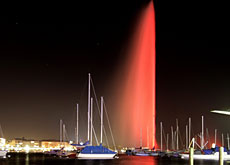Swiss expertise to aid Sudan peace efforts

Switzerland has agreed to send experts to southern Sudan to help implement the 2005 peace agreement that ended Africa’s longest civil war.
The cabinet said it would post a small team of advisors in the area, specialising in fields including international humanitarian law, the law of armed conflict and democratic control of the armed forces.
The two-year old peace deal was built on the foundation of a 2002 ceasefire which was signed by the conflicting parties in a Swiss mountain retreat.
The government’s decision to send experts is based on its belief that it can contribute to the reconstruction of public institutions in southern Sudan.
It comes in response to a request by the Swiss defence ministry.
The team, consisting of up to three experts, could be strengthened by other Swiss specialists for deployments of up to a month. The government emphasised that although the advisors were from the Swiss defence ministry, the missions were purely civil in nature.
The cabinet added that the plan had the approval of both the Sudanese government in Khartoum and the authorities in southern Sudan.
The advisors will join representatives of Switzerland’s Agency for Development and Cooperation (SDC) already in southern Sudan.
The SDC calls the situation in that part of the country “intractable”, despite the peace agreement. “It has been impossible to implement any substantial development projects,” the agency says on its website.
“However, much needed improvements to basic social services in southern Sudan and the Nuba Mountains are possible.”
UN visit
The decision on Wednesday coincided with a visit to the region by the United Nations Secretary-General Ban Ki-moon.
Ban met southern Sudanese leaders to try to resolve the sticking points in the implementation of the Comprehensive Peace Agreement that ended over two decades of conflict between the northern government and southern rebels.
Senior UN officials said there were worrying signals about the implementation of the deal, including delays in the promised pullout of government troops from the south.
The peace accord had called for the army to redeploy all its soldiers by July 9, but the Sudanese government said last week they would be withdrawn from the southern oilfields “gradually”.
swissinfo with agencies
Sudan is Africa’s largest nation and a country of great diversity. The region of Darfur alone is larger than France.
The 21-year conflict between mainly Muslim north and the Christian and Animist south ended in 2005, with an autonomous government in the south.
An estimated 1.5 million people died in this conflict, in which southern rebels said they were battling oppression and marginalisation.
The Darfur conflict broke out as the north and south were edging towards peace.

In compliance with the JTI standards
More: SWI swissinfo.ch certified by the Journalism Trust Initiative













You can find an overview of ongoing debates with our journalists here . Please join us!
If you want to start a conversation about a topic raised in this article or want to report factual errors, email us at english@swissinfo.ch.